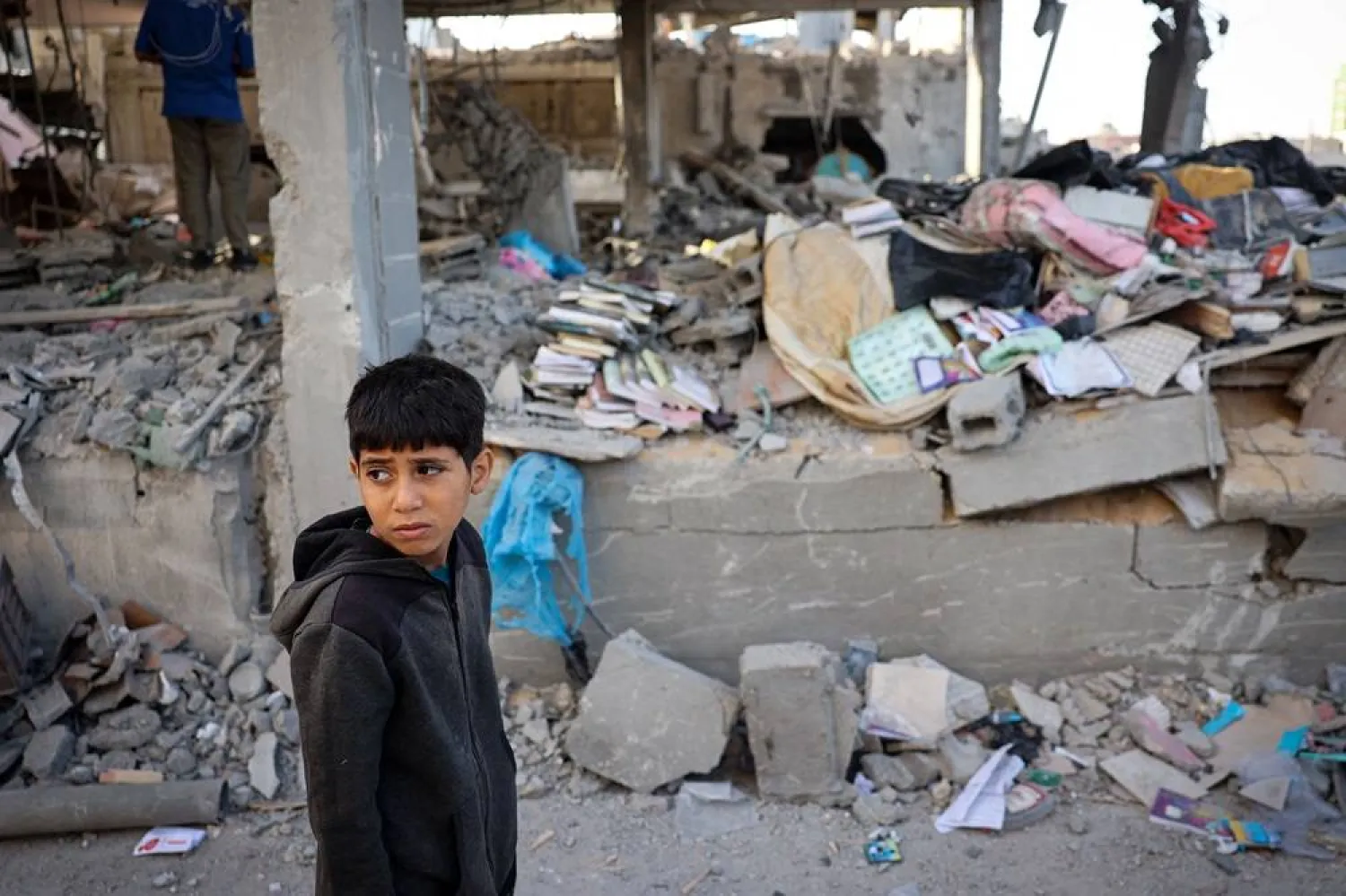Israel this week briefed Biden administration officials on a plan to evacuate Palestinian civilians ahead of a potential operation in the southern Gaza city of Rafah aimed at rooting out Hamas fighters, according to US officials familiar with the talks.
The officials, who were not authorized to comment publicly and requested anonymity to speak about the sensitive exchange, said that the plan detailed by the Israelis did not change the US administration’s view that moving forward with an operation in Rafah would put too many innocent Palestinian civilians at risk.
Israeli Prime Minister Benjamin Netanyahu has vowed to carry out a military operation in Rafah despite warnings from President Joe Biden and other western officials that doing so would result in more civilian deaths and worsen an already dire humanitarian crisis.
The Biden administration has said there could be consequences for Israel should it move forward with the operation without a credible plan to safeguard civilians.
“Absent such a plan, we can’t support a major military operation going into Rafah because the damage it would do is beyond what’s acceptable,” US Secretary of State Antony Blinken said late Friday at the Sedona Forum, an event in Arizona hosted by the McCain Institute.
Some 1.5 million Palestinians have sheltered in the southern Gaza city as the territory has been ravaged by the war that began on Oct. 7 after Hamas gunmen attacked Israel, killing 1,200 people and taking about 250 hostages.
The United Nations humanitarian aid agency on Friday said that hundreds of thousands of people would be “at imminent risk of death” if Israel moves forward with the Rafah assault. The border city is a critical entry point for humanitarian aid and is filled with displaced Palestinians, many in densely packed tent camps.
The officials added that the evacuation plan that the Israelis briefed was not finalized and both sides agreed to keep discussing the matter.
White House press secretary Karine Jean-Pierre told reporters on Friday that no “comprehensive” plan for a potential Rafah operation has been revealed by the Israelis to the White House. The operation, however, has been discussed during recent calls between Biden and Netanyahu as well as during recent virtual talks with top Israeli and US national security officials.
“We want to make sure that those conversations continue because it is important to protect those Palestinian lives — those innocent lives,” Jean-Pierre said.
The revelation of Israel's continued push to carry out a Rafah operation came as CIA director William Burns arrived Friday in Egypt, where negotiators are trying to seal a ceasefire accord between Israel and Hamas.
Hamas is considering the latest proposal for a ceasefire and hostage release put forward by US, Egyptian and Qatari mediators, who are looking to avert the Rafah operation.
They have publicly pressed Hamas to accept the terms of the deal that would lead to an extended ceasefire and an exchange of Israeli hostages taken captive on Oct. 7 and Palestinian prisoners in Israeli jails.
Hamas has said it will send a delegation to Cairo in the coming days for further discussions on the offer, though it has not specified when.
Israel, and its allies, have sought to increase pressure on Hamas on the hostage negotiation. Signaling that Israel continues to move forward with its planning for a Rafah operation could be a tactic to nudge the militants to finalize the deal.
Netanyahu said earlier this week that Israeli forces would enter Rafah, which Israel says is Hamas’ last stronghold, regardless of whether a truce-for-hostages deal is struck. His comments appeared to be meant to appease his nationalist governing partners, and it was not clear whether they would have any bearing on any emerging deal with Hamas.
Blinken visited the region, including Israel, this week and called the latest proposal “extraordinarily generous” and said “the time to act is now.”
In Arizona on Friday, Blinken repeated remarks he made earlier this week that "the only thing standing between the people of Gaza and a ceasefire is Hamas.”









